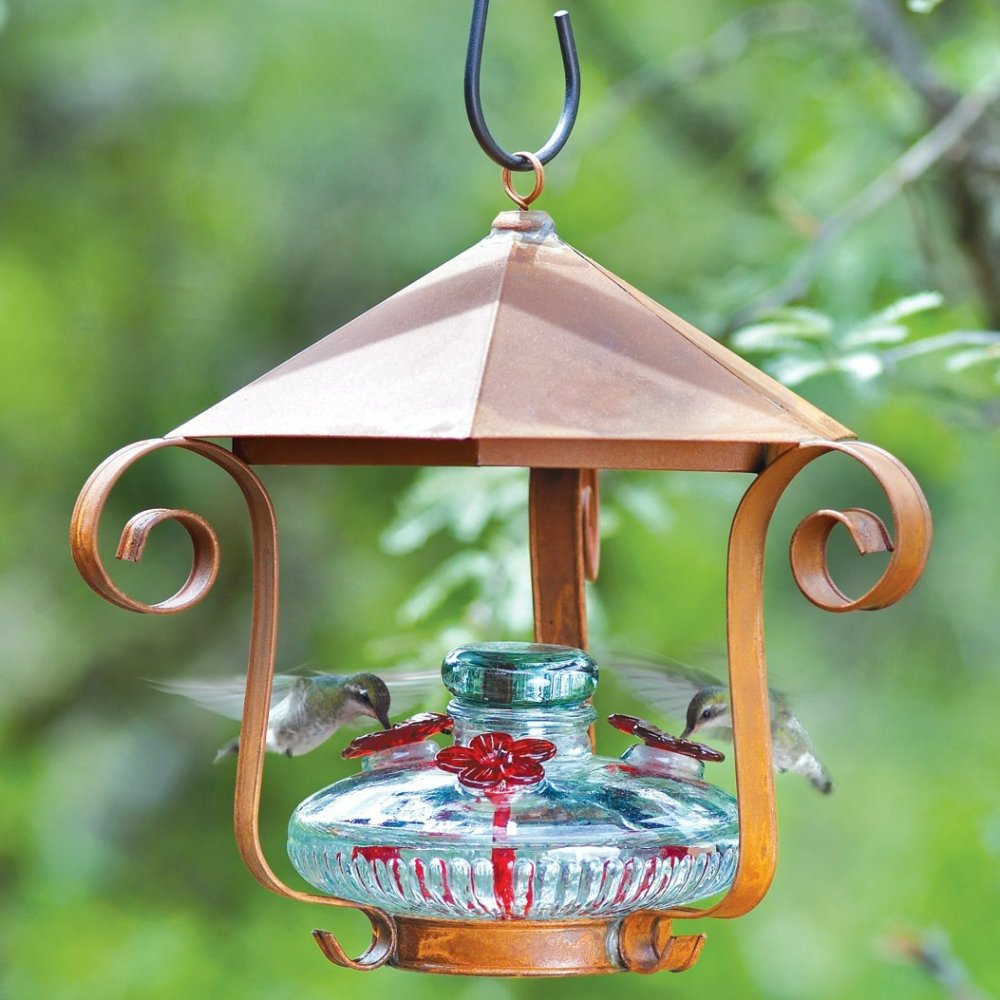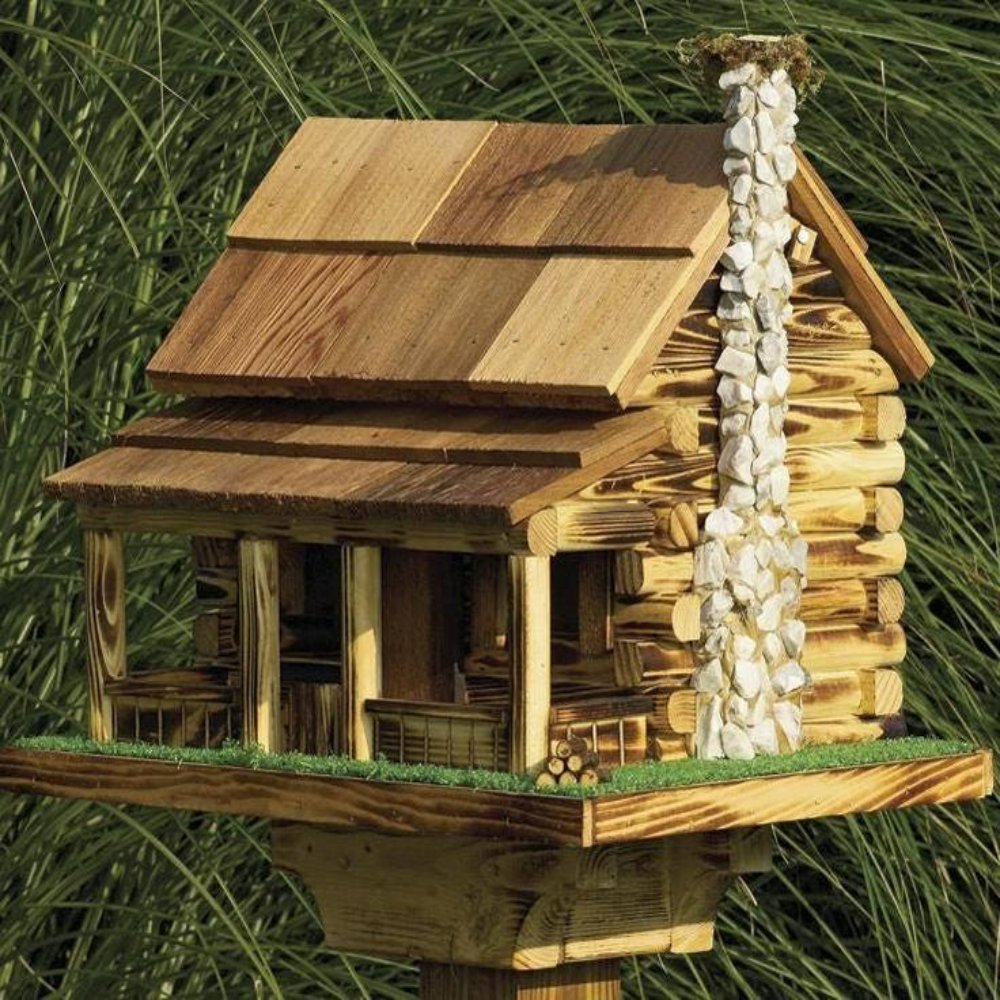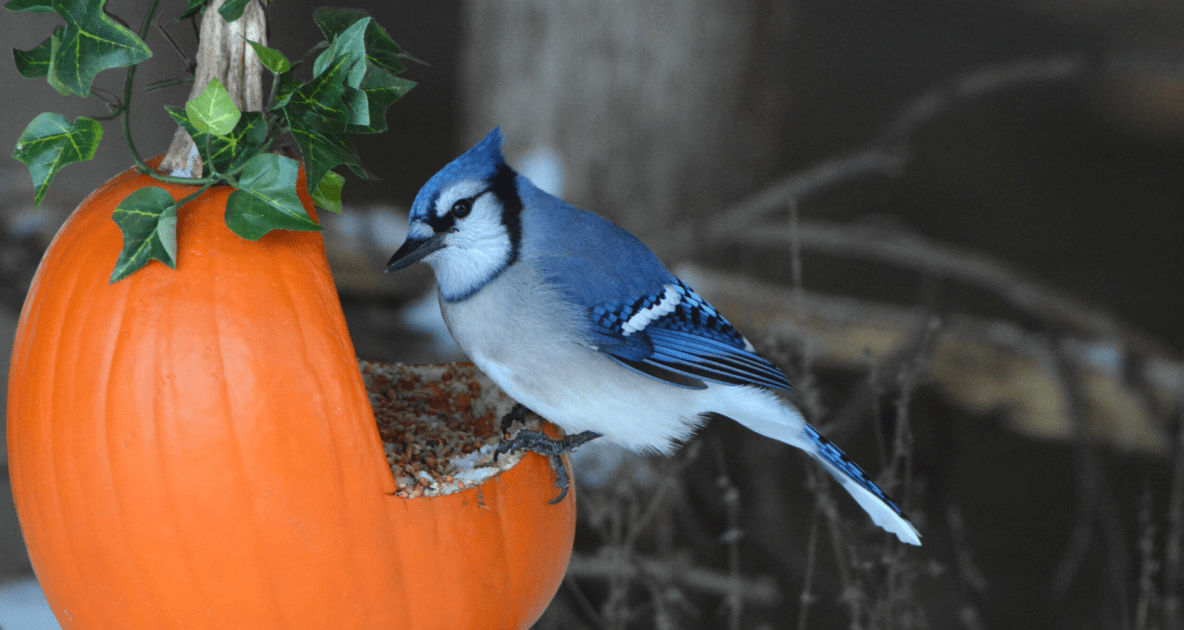Introduction
In today’s fast-paced world, finding quality time to spend together as a family can often be a challenge. However, engaging in meaningful and creative activities not only strengthens family bonds but also provides lasting memories. One delightful way to reconnect with your loved ones, especially during weekends or holidays, is to construct bird feeders together. In this blog post, we’ll explore why this activity is beneficial, provide detailed instructions on how to make a bird feeder for kids, and discuss the joy of birdwatching as a family. Let’s dive in!
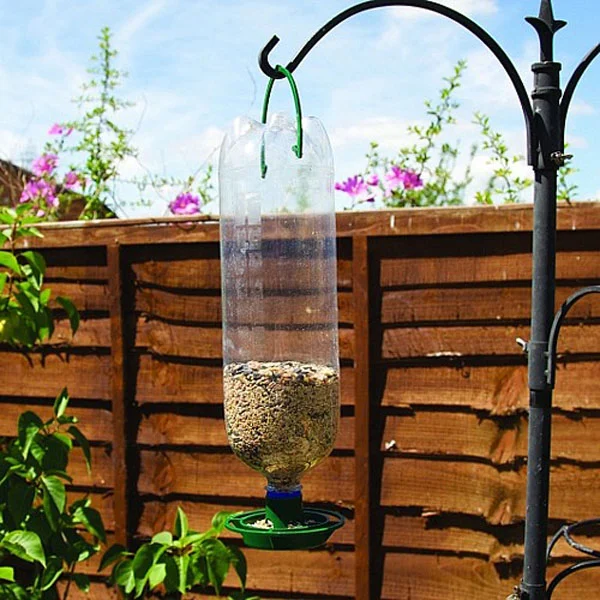
The Importance of Family Bonding
Family bonding activities are vital for nurturing and developing emotional connections. When families engage in shared experiences, they build trust, improve communication, and create a sense of belonging. Knowing how to make a bird feeder for kids together can serve as a delightful way to foster these relationships. While working together to construct something tangible, family members learn valuable lessons about teamwork, patience, and creativity.
Benefits of Spending Time in Nature
Research shows that spending time in nature is beneficial for our physical and mental health. Engaging in outdoor activities can reduce stress, improve mood, and enhance overall well-being. By learning about how to make a bird feeder for kids, families can enjoy fresh air, sunshine, and the beauty of their local environment, providing an excellent backdrop for bonding.
Choosing the Right Bird Feeder Design
Simple Yet Effective Designs for Beginners
Before diving into the construction process, it’s essential to choose a bird feeder design that suits your skill level and the materials you have on hand. For families new to DIY projects, simple designs are perfect to get started. Here are three beginner-friendly designs:
Basic Wooden Bird Feeder: Using untreated wood planks, you can create a basic platform feeder that attracts various bird species. This design is straightforward and can be customized with your family’s creativity.
Plastic Bottle Feeder: Repurposing an empty plastic bottle is a fun way to create a bird feeder. This eco-friendly option is budget-friendly and perfect for families with younger children.
Cup and Saucer Feeder: This whimsical feeder involves using a teacup and saucer. It’s a charming design that adds an artistic touch to any garden and is easy to assemble.
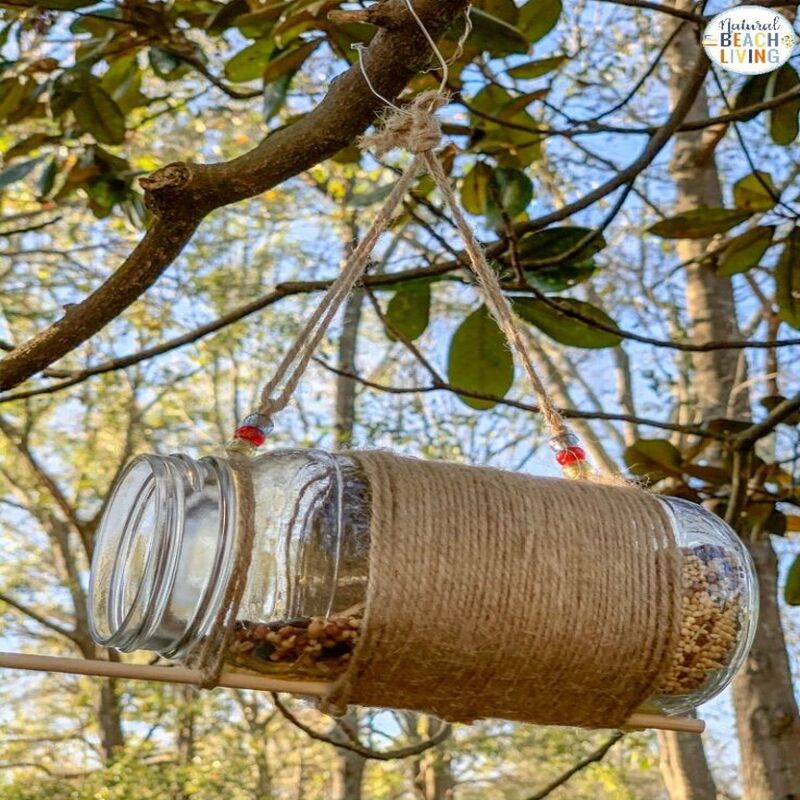
Material Selection: What You’ll Need
Gathering Your Supplies
Gathering materials is an integral part of the construction process and can be a bonding experience in itself. Here’s a comprehensive list of items you will need based on the chosen bird feeder design:
For the Basic Wooden Bird Feeder:
Untreated wooden planks (cedar or pine)
Wood screws
Wood glue
Sandpaper
Exterior wood sealer (non-toxic)
Paint or wood stain (optional)
Basic tools: saw, drill, hammer, measuring tape
For the Plastic Bottle Feeder:
An empty plastic bottle (1-2 liters)
Wooden dowels or skewers
Rope or twine
Scissors
Birdseed
A small drill or sharp object to make holes
For the Cup and Saucer Feeder:
An old teacup and matching saucer
Strong adhesive (epoxy glue preferably)
Drill and drill bits (to make a hole for hanging)
Twine or fishing line for hanging
Involving children in the gathering stage allows them to learn about different materials and promotes eco-friendliness by using items you already have around the house.
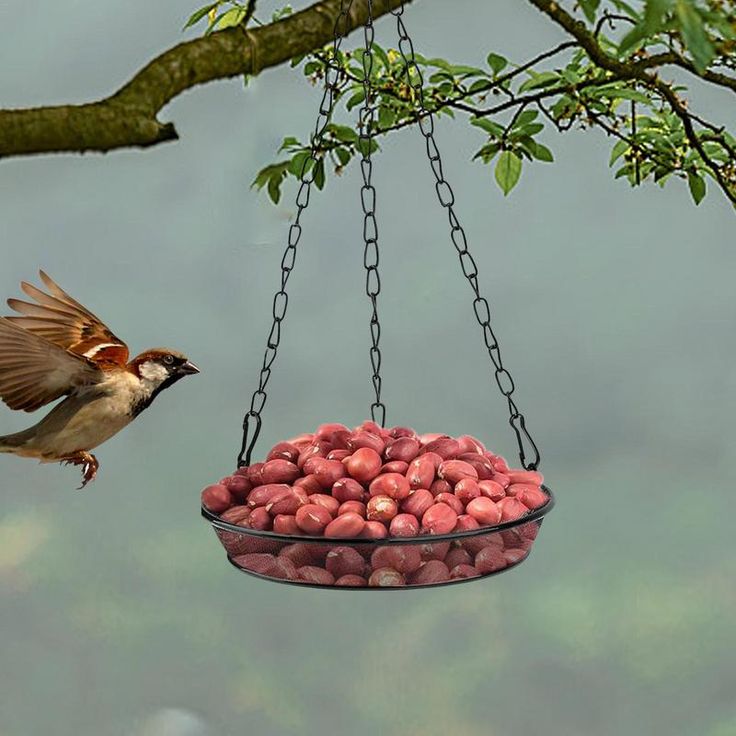
Step-by-Step Guide to Constructing Bird Feeders
Assembling the Basic Wooden Bird Feeder
Cut Your Wood: Measure and cut your wooden planks according to the desired size of your feeder. A simple rectangular base typically measures about 10 x 8 inches, with a roof made of two planks cut to fit over the edges.
Sand the Edges: Smooth the edges of each cut wood piece to eliminate any splinters and ensure safety, especially with young helpers involved.
Construct the Base: Start by attaching the base. Use wood screws to securely fix the side panels to the bottom, ensuring it’s sturdy enough to hold the feed.
Add the Roof: Attach the roof pieces at an angle to allow rain to run off. Secure them with wood glue and screws.
Seal the Feeder: Once the construction is complete, paint or stain your feeder if desired, then finish by applying a non-toxic exterior wood sealant to prolong its life.
Installation: Choose a suitable location to hang or place your feeder, ideally near trees or shrubs to attract birds.
Creating the Plastic Bottle Feeder
Prepare the Bottle: Clean the bottle thoroughly and dry it. Using a drill or a sharp object, make small holes on opposite sides of the bottle, a few inches from the bottom.
Insert Dowels: Push wooden dowels or skewers through the holes. These act as perches where birds can land.
Fill with Birdseed: Pour birdseed into the bottle until it fills slightly above the dowels.
Create a Hanging Mechanism: Cut a length of rope or twine and tie it around the neck of the bottle, leaving enough to hang.
Hang Your Feeder: Select an appropriate location to hang your feeder, ensuring it’s stable and easily visible for observation.
Assembling the Cup and Saucer Feeder
Attach the Cup to the Saucer: Using an appropriate adhesive, securely glue the teacup to the center of the saucer. Make certain that the cup is upside down to create a sheltered area.
Drill a Hole for Hanging: If desired, drill a small hole in the bottom of the teacup or through the saucer to allow you to thread twine or fishing line through for hanging.
Fill with Seed: Fill the cup with birdseed and place the saucer underneath to catch any spillage.
Choose a Display Spot: Hang the feeder or place it on a stable surface where birds can easily access it.
The Joy of Birdwatching: A Perfect Follow-Up Activity
Instilling a Love for Nature
Once your bird feeders are completed and hung, the real fun begins—watching the birds! Set aside some time to sit together as a family and observe the various bird species that come to visit your creation. This unique bonding experience allows family members to appreciate nature’s beauty while also learning about the local wildlife.
Keeping a Bird Journal
To enhance this activity, consider keeping a family birdwatching journal. Documenting the different birds that visit your feeders not only encourages kids to engage with their surroundings but also fosters curiosity and learning. Include details such as:
Date and time of the observation
Type of birds spotted
Behavior observed (feeding, bathing, etc.)
Draw pictures or attach photographs of the birds
Exploring More Bird-Related Activities
Birdwatching opens the door to various educational opportunities. Families might consider:
Attending local bird-watching events or joining a birding club.
Learning bird calls and songs together.
Exploring the books on native bird species.
These activities further enrich family bonding time while promoting knowledge and appreciation of avian life.
Conclusion: Building Lasting Memories
Constructing bird feeders together is more than just a crafting activity; it’s an opportunity to grow closer as a family, develop new skills, and cultivate an appreciation for nature. By selecting an easy-to-follow design, gathering materials, and collaborating in the building process, families can know how to make a bird feeder for kids and enjoy a fulfilling day outdoors. The joy of observing birds at your newfound feeders serves as a delightful reward, turning a simple project into lasting memories. As you embrace the serenity of the outdoors and the beauty of birds, you are sure to enrich your family’s bonds and habits for years to come.
So gather your loved ones, unleash your creativity, and embark on this enjoyable journey of constructing bird feeders together. Happy building and birdwatching!
